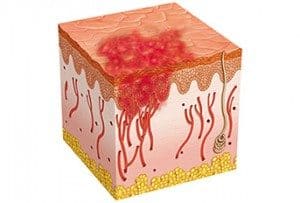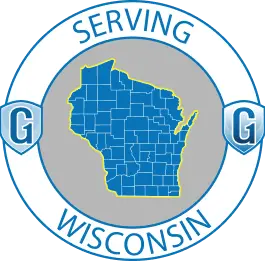
What is Steven Johnson Syndrome?
This condition is a rare and serious disorder that is most often associated with either an infection or a reaction to a medication. The upper layer of the skin blisters, and the affected area dies and sheds from the body, according to the Mayo Clinic. If you have contracted Steven Johnson Syndrome, call us today.
Have you developed Stevens-Johnson syndrome? This condition is a rare and serious disorder that is most often associated with either an infection or a reaction to a medication. The upper layer of the skin blisters, and the affected area dies and sheds from the body, according to the Mayo Clinic.
The condition requires hospitalization, and may require many weeks or months to resolve, depending upon how serious the individual case.
Associative Medications
There are several medications that have been associated with cases of Stevens-Johnson syndrome. The FDA issued a warning about a rare but serious skin reactions associated with pain relievers and fever reducers, including:
- Acetaminophen
- Ibuprofen
- Naproxen
Patients who used products containing acetaminophen and later developed Stevens-Johnson syndrome should connect with our firm to discuss moving forward with an injury claim.
These cases can involve a prescribed medication containing acetaminophen, or an over-the-counter drug. The medications containing ibuprofen and naproxen already warned consumers of the risk of developing this dangerous skin condition.
Side Effects
Stevens-Johnson syndrome is a very serious condition, and patients who have suffered the condition will face a long and painful recovery time.
Those who have compromised immune systems are believed to be more likely to get the disease, as well as those who have had radiation treatments. Patients may be treated in a burn unit or by a special staff that is trained to treat the condition, according to the Mayo Clinic.
The condition carries the risk of infection, and the potential for permanent, disfiguring scarring. The same source reports that there are over 100 drugs that can cause SJS, including Aloprim, Zyloprim, Tylenol, Advil, Aleve, Motrin, Bactrim, Septra, Zithromax and drugs that treat seizures (such as Carbatrol and Tegratol), sulfa antibiotics, and certain medications used to treat various mental illnesses.
Injuries
The Mayo Clinic reports that the injuries sustained by patients who have developed SJS vary in severity. The initial symptoms include a fever, similar to the flu.
As the condition progresses, the patient will develop painful red or purple skin that appears burned, and blisters on the skin. These blisters can appear on the mouth, nose, and genitals, or may even be internal, making it extremely painful to swallow, eat, drink, or perform normal elimination functions. There is a potential for lasting damage from SJS, or death in some cases.
A review of the FDA’s adverse event database between 1969 and 2012 uncovered 107 cases of significant skin reaction, with 67 hospitalizations and 12 deaths.
Your Legal Options
If you have suffered a severe reaction to a medication and developed Stevens-Johnson syndrome, it is in your best interests to get legal representation to assist you to file an injury claim.
Your case is unique, and the facts must be evaluated so that you understand what to expect, how the case will move forward and how long it is expected to take to settle, as well as the estimated value of a claim. Call our firm to get the help you need to seek justice. Call now.












